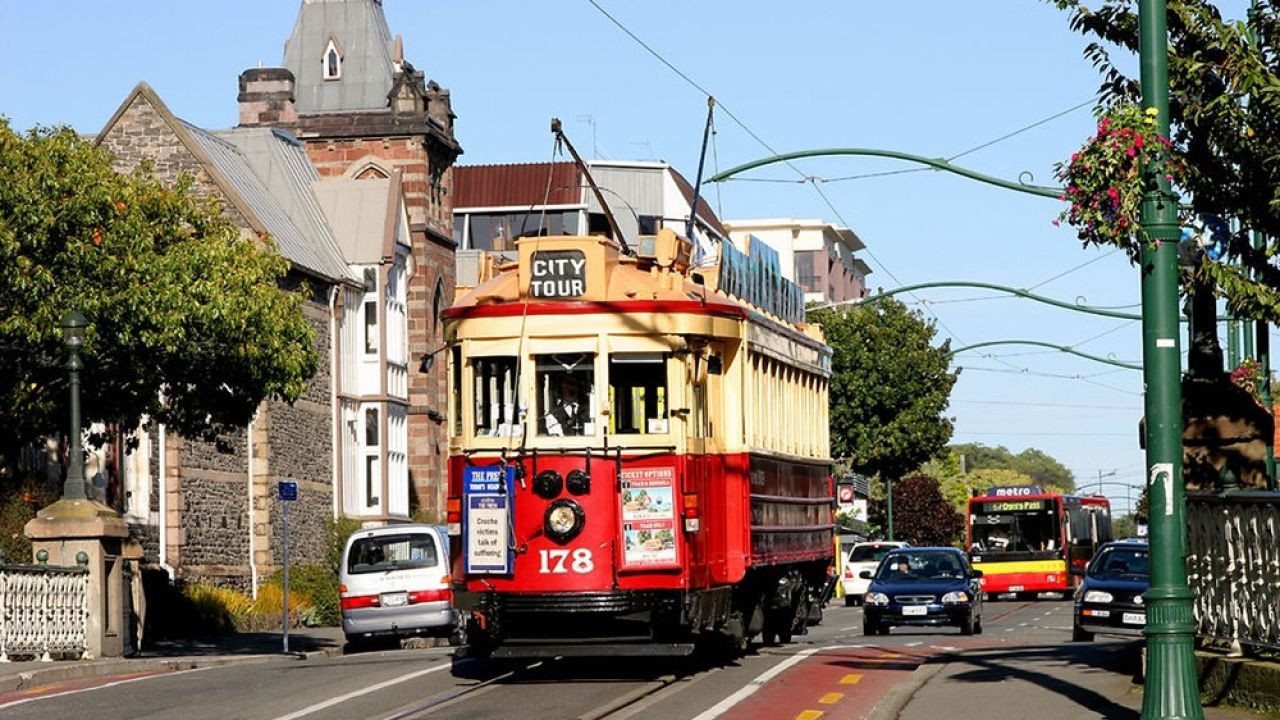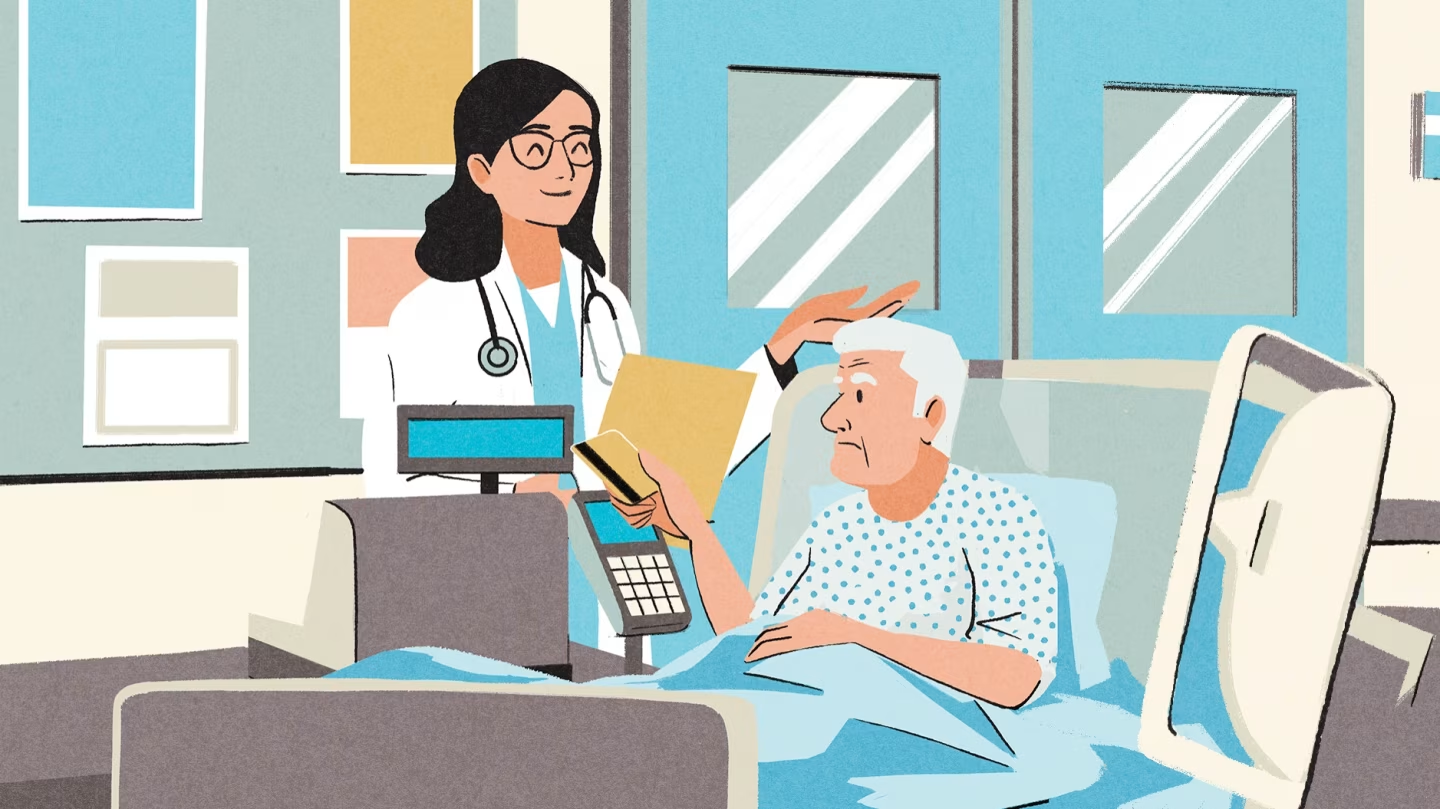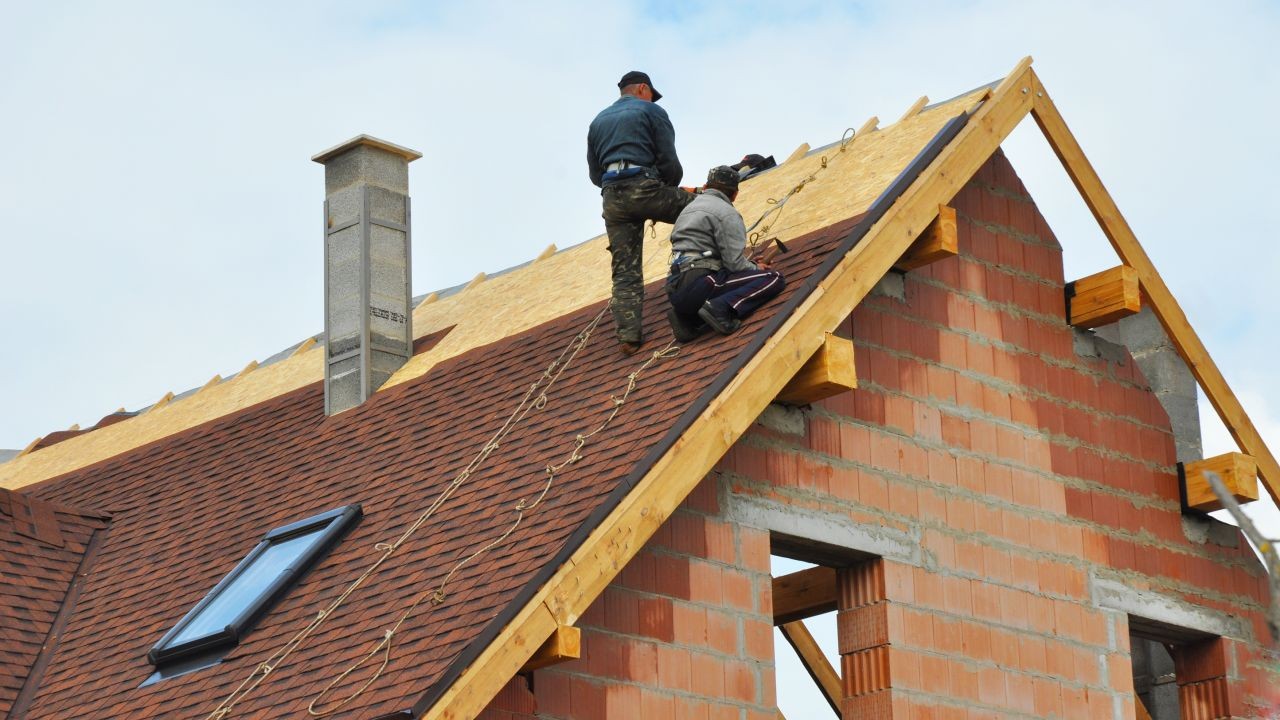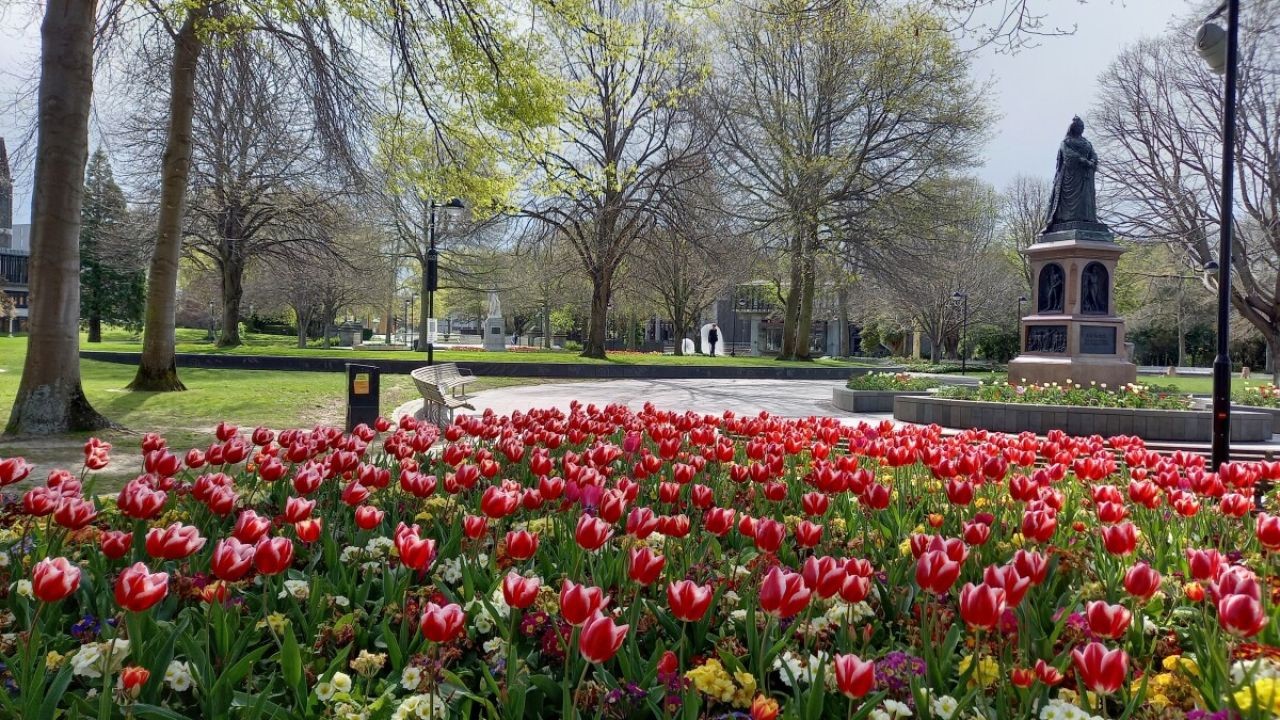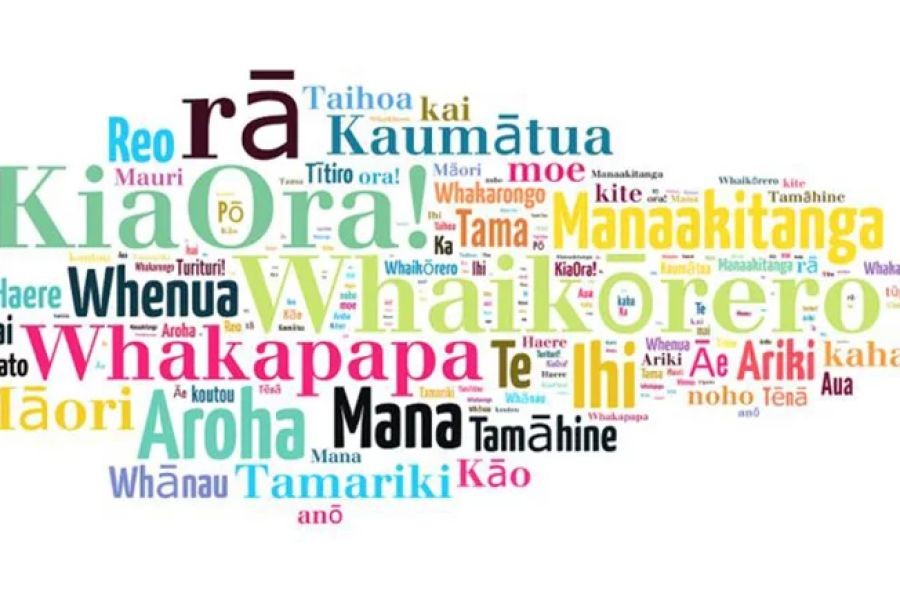When people think of sexually open societies, Brazil’s Carnival or Sweden’s liberal policies may come to mind. But nestled in the South Pacific, with just five million people and a reputation for modesty, New Zealand quietly challenges global assumptions. It legalizes sex work, teaches comprehensive sex education, supports LGBTQ+ rights, and embraces personal freedom — yet rarely flaunts it. So, is New Zealand actually a sexually open country? Or is it simply progressive in private?
This article dives deep into New Zealand’s legal framework, youth education, dating culture, attitudes toward affairs, LGBTQ+ visibility, and Māori influences, all while comparing it to the global stage. With evidence from law, culture, behavior, and global data, we uncover what truly defines Kiwi sexual openness — and why it matters for anyone navigating modern relationships, migration, or cultural understanding.
Let’s explore whether Kiwis are quietly more sexually free than many of the world’s most vocal liberal nations.
📜 PART 1: Legal Landscape – What’s Allowed, What’s Taboo
Understanding How New Zealand's Laws Enable Sexual Openness
New Zealand may be a small country, but its progressive legal stance on sexual rights, personal freedoms, and human dignity has positioned it among the most sexually open and inclusive societies in the world. Unlike many nations where sex remains shrouded in taboo or contradiction, Aotearoa offers a legal framework that not only protects private choices but actively encourages autonomy, consent, and equality.
Let’s break down how New Zealand’s legal foundations enable – and reflect – this culture of openness.
🔞 Age of Consent: 16 Years Old
New Zealand law sets the age of consent at 16, regardless of gender or sexual orientation. This consistent, equal approach removes ambiguity and protects the rights of all young people while emphasizing the importance of informed consent.
There are no “close-in-age exemptions” (i.e., “Romeo and Juliet” laws), so technically, even consensual sexual activity between a 15- and 16-year-old could be legally scrutinized, but prosecutions are rare unless coercion or exploitation is involved.
➡️ Why it matters: A clear and equal consent law avoids double standards and helps build early sexual agency, backed by school-based sex education and youth health services.
💼 Decriminalization of Sex Work: 2003 Prostitution Reform Act
One of New Zealand’s most radical legal reforms came in 2003 with the passing of the Prostitution Reform Act, which decriminalized sex work. This move made NZ the first country in the world to fully decriminalize both selling and purchasing sex for adults, under clear safety and consent conditions.
“The act aims to safeguard the human rights of sex workers and promote their welfare and occupational health and safety.” – NZ Ministry of Justice
Sex workers must operate within licensed frameworks for brothels or independently.
Coercion, underage sex work, and trafficking remain strictly illegal.
➡️ Global impact: NZ’s approach is often cited as a gold standard by human rights advocates and is in stark contrast to countries that criminalize either sellers or buyers, leading to underground abuse and stigma.
🏳️🌈 LGBTQ+ Rights: Full Equality in Law
New Zealand has consistently ranked as one of the most LGBTQ+ inclusive countries globally.
Homosexuality was decriminalized in 1986.
Civil unions were legalized in 2005.
Same-sex marriage became legal in 2013, well ahead of many OECD countries.
Transgender individuals can legally change their gender on official documents without requiring surgery as of the Births, Deaths, Marriages, and Relationships Registration Act (2021).
➡️ Result: Same-sex couples enjoy the same adoption, relationship property, and inheritance rights as heterosexual couples — a rarity in many parts of the world.
🏛️ Relationship Property and Privacy Laws
New Zealand law recognizes de facto relationships (two people living together as a couple for 3+ years) and gives them similar rights to married couples regarding property division under the Property (Relationships) Act 1976.
Personal privacy is protected under the Privacy Act 2020, including sexual and relationship data.
➡️ This legal infrastructure offers people a sense of security and respect, reinforcing the idea that your private life is your own — and that dignity applies regardless of orientation, profession, or lifestyle.
⚖️ How the Legal Structure Reflects Openness
New Zealand's legal framework doesn’t just permit sexual expression — it normalizes and protects it. Here’s how:
Equality before the law means there’s no moral judgment about who you love or how you express sexuality.
State neutrality ensures no religious or cultural belief dominates legislation.
Protection and autonomy are prioritized over punishment or shame.
“What sets New Zealand apart is that our laws reflect a culture of trust in individual responsibility, not just control.”
— Daniel Chyi, Co-founder of Vidude.com
🌐 Global Comparison: A Sharp Contrast to More Restrictive Nations
In China, same-sex marriage is still not legal, sex education remains limited, and public displays of affection are culturally restrained.
In India, while homosexuality was decriminalized in 2018, same-sex unions are not legally recognized, and sex remains heavily stigmatized in many communities.
Meanwhile, countries like Brazil and Sweden may be more permissive socially, but New Zealand offers a stronger legal balance of freedom + protection.
✅ Key Takeaways
NZ’s legal openness is not an accident — it’s the result of decades of progressive reform and a commitment to human rights.
Laws support real equality — not just tolerance, but protection and affirmation of all identities.
This legal clarity and protection foster confidence, openness, and healthy relationships across society.
🧠 PART 2: Sex Education & Youth Awareness — Building Informed, Respectful Generations
New Zealand’s approach to sex education is widely regarded as progressive, comprehensive, and centered on empowering young people with knowledge, respect, and consent skills. This strong foundation helps explain why Kiwi youth tend to engage in healthier, more informed sexual behaviors compared to many countries with similar or larger populations.
📚 Ministry of Education Policies: A Holistic Approach
The Ministry of Education mandates comprehensive sexual and reproductive health education from primary through secondary school levels. The curriculum is designed not only to deliver biological facts but also to foster understanding of:
Consent and boundaries
Diversity of sexual orientation and gender identities
Healthy relationships and emotional intelligence
Online safety and respectful digital behavior
These lessons are regularly updated to reflect changing social attitudes and medical knowledge, emphasizing inclusion and respect for cultural diversity, including Māori and Pasifika perspectives.
✔️ Consent and Diversity at the Core
Unlike some countries where sex education focuses narrowly on abstinence or reproduction, New Zealand schools prioritize consent as a fundamental principle.
Students learn that all sexual activity must be freely agreed upon, with clear communication.
Education also addresses LGBTQ+ inclusivity, helping reduce stigma and bullying.
Culturally responsive teaching acknowledges whānau values and diversity.
🌎 International Comparison: Progressive vs. Conservative Approaches
In the United States, sex education varies by state, with many schools promoting abstinence-only programs, which have been linked to higher teenage pregnancy and STI rates.
The Netherlands is a global leader in comprehensive sex education, focusing on openness and youth empowerment, which results in among the lowest teen pregnancy rates worldwide.
New Zealand sits closer to the Dutch model, though with unique cultural adaptations to honor Māori and Pasifika traditions.
📊 Kiwi Youth Behavior: Positive Trends and Challenges
Teen pregnancy rates in New Zealand have dropped significantly over the past two decades. According to the Ministry of Health (2023):
Teen birth rate fell from approximately 14 per 1,000 women aged 15–19 in 2000 to around 7 per 1,000 in 2022.
Māori and Pasifika communities still experience higher rates, but targeted interventions are reducing disparities.
STI rates, including chlamydia and gonorrhea, remain a concern but are actively monitored with public health campaigns promoting testing and safe sex.
Access to contraception is widespread, with subsidized options and education ensuring young people can make informed choices.
✅ Why This Matters
A well-educated youth population with strong knowledge of consent, diversity, and reproductive health is central to a sexually open society. New Zealand’s sex education policies:
Help reduce stigma and misinformation
Promote responsible and respectful sexual behavior
Support vulnerable groups with inclusive messaging
👫 PART 3: Dating, Hookups & Relationships — The Kiwi Way
New Zealanders have a reputation for being open, straightforward, and relatively relaxed when it comes to dating and casual relationships. This openness is shaped by a blend of cultural values, modern technology, and evolving social norms, making Kiwi dating unique compared to many other countries.
🌟 How Open Are New Zealanders About Dating and Casual Sex?
In New Zealand, casual dating and hookups are generally normalized, especially among younger adults and in urban areas like Auckland, Wellington, and Christchurch.
Studies show a growing acceptance of casual sex without long-term commitment, reflecting broader global trends but with a distinctly Kiwi laid-back attitude.
However, respect and consent remain paramount, with an emphasis on clear communication.
Social stigma around casual sex is relatively low compared to more conservative countries, and open conversations about relationships and sexuality have become common in media, schools, and peer groups.
📱 The Rise of Dating Apps: Tinder, Bumble, Feeld and More
Dating apps have transformed Kiwi socializing patterns:
Tinder remains the most popular dating app in New Zealand, used by a broad spectrum of ages and regions.
Bumble has gained popularity, especially among women, for empowering users to initiate conversations.
Niche apps like Feeld cater to more open-minded or non-traditional relationship seekers, reflecting New Zealand’s acceptance of diverse sexual orientations and relationship styles.
Recent data indicates that over 50% of Kiwi singles aged 18–35 have used dating apps, mirroring international urban trends.
🌄 Urban vs. Rural Differences in Social Norms
While urban centers show high levels of openness and dating diversity, rural and smaller communities tend to be more conservative.
In rural areas, traditional values and closer-knit social circles sometimes result in more discreet dating practices and slower acceptance of casual relationships.
Nevertheless, younger generations across the country are bridging this divide through online platforms and mobile connectivity.
🌍 Cross-Cultural Relationships and Gender Dynamics
New Zealand’s multicultural population contributes to varied dating dynamics:
Relationships between Kiwi Europeans and Māori or Pasifika partners often blend cultural practices and values around respect and family.
Increasing numbers of Asian-Kiwi relationships bring unique dynamics, balancing traditional Asian values with Kiwi openness and independence.
Gender roles in relationships are evolving, with a strong emphasis on equality, mutual respect, and shared responsibilities.
The acceptance of intercultural relationships also underscores New Zealand’s broader inclusive and tolerant social fabric.
✅ Summary
Kiwi dating culture exemplifies a mix of openness, respect, and adaptability — all framed within a culturally diverse society. This balance of freedom and responsibility fosters healthier relationships and reflects New Zealand’s overall approach to sexuality and social interaction.
💔 PART 4: Affairs, Polyamory, and the Reality of Openness
While New Zealand is often seen as sexually open and progressive, the reality of intimate relationships reveals complexity, especially regarding infidelity, open relationships, and alternative relationship structures such as polyamory.
📊 Public Attitudes Towards Infidelity and Open Relationships
Surveys indicate that around 30-40% of New Zealand adults admit to having had extramarital affairs at some point, a figure comparable to many Western countries.
While affairs are often stigmatized, there is growing dialogue around honesty, boundaries, and consent in non-monogamous relationships.
Open relationships and ethical non-monogamy are increasingly recognized as valid lifestyle choices rather than fringe alternatives, though still a minority.
A 2021 study by the New Zealand Attitudes and Values Survey (NZAVS) reported that about 10% of adults had engaged in or were open to non-monogamous arrangements.
🌍 Data on Extramarital Affairs: New Zealand in Global Context
Globally, rates of infidelity vary widely, but New Zealand aligns closely with other liberal Western nations such as Australia, Canada, and parts of Europe.
Comparatively, more conservative countries like China and some parts of South America report lower self-reported affair rates but may experience underreporting due to stigma and legal consequences.
The openness in NZ’s legal and cultural landscape may contribute to more honest reporting and discussions around infidelity.
🔄 The Quiet Rise of Polyamory and Ethical Non-Monogamy in NZ
Polyamory—maintaining multiple consensual romantic relationships simultaneously—is becoming more visible in New Zealand’s urban centers, especially Auckland and Wellington.
Support groups, online forums, and events like Poly Pride NZ highlight growing community organization and awareness.
Ethical non-monogamy emphasizes communication, consent, and emotional accountability, aligning with Kiwi values around honesty and respect.
🧠 Psychological, Emotional, and Societal Impact
While alternative relationship models can promote emotional openness and personal growth, they also bring challenges such as jealousy, social stigma, and legal uncertainties.
Infidelity, on the other hand, often leads to trust breakdown and psychological distress for partners involved.
Societally, increasing conversations around diverse relationship structures contribute to greater inclusivity and reduced shame around sexual choices.
✅ Summary
New Zealand’s sexual openness includes grappling honestly with complex realities like infidelity and non-traditional relationships. The evolving acceptance of polyamory and ethical non-monogamy reflects a mature approach that balances freedom with responsibility and respect.
🏳️🌈 PART 5: LGBTQ+ Visibility and Acceptance
New Zealand is widely recognized for its progressive stance on LGBTQ+ rights and inclusion, reflecting its broader culture of sexual openness and diversity. This visibility and acceptance play a critical role in shaping societal attitudes and individual freedoms.
🌈 Acceptance and Support for LGBTQ+ Communities
New Zealand legalized same-sex marriage in 2013, becoming one of the early adopters in the Asia-Pacific region.
According to a 2023 Rainbow Wellbeing study, over 85% of New Zealanders express support for LGBTQ+ rights, including protection from discrimination and access to healthcare.
Public opinion surveys show younger generations in particular embrace gender diversity and sexual fluidity, driving cultural change in schools and workplaces.
⚧ Trans Rights, Pride Parades, and Inclusion
The transgender community in New Zealand has seen growing legal recognition and advocacy, with steps taken toward easier gender marker changes and healthcare access.
Annual Pride parades in Auckland, Wellington, and Christchurch attract tens of thousands, showcasing strong community support and raising awareness of ongoing challenges.
Schools have increasingly integrated inclusive policies and education on gender identity and sexual orientation, helping create safer environments for queer youth.
🏳️🌈 Queer Dating, Nightlife, and Cultural Representation
Dating apps and social spaces catering to LGBTQ+ individuals flourish, with platforms like HER, Grindr, and Tinder widely used by queer Kiwis.
Cities like Auckland boast vibrant queer nightlife scenes including bars, clubs, and events that foster a sense of belonging.
New Zealand media and arts increasingly feature authentic queer stories and characters, contributing to normalization and celebration of LGBTQ+ identities.
✅ Summary
New Zealand’s commitment to LGBTQ+ rights and visibility strengthens its reputation as a sexually open society. This acceptance fosters diversity, promotes mental health, and enriches cultural life, making it a supportive environment for all sexual and gender identities.
📺 PART 6: Media, Arts, and Pop Culture – A Window into Openness
Media, arts, and pop culture are powerful mirrors and molders of societal attitudes toward sex and sexuality. In New Zealand, these cultural outlets reveal a nuanced yet open approach to sexual themes that both reflect and shape public perceptions.
🎬 Portrayal of Sex and Sexuality in New Zealand Media
New Zealand’s TV shows, films, and literature often incorporate complex, mature, and diverse portrayals of sexuality. For example, the critically acclaimed TV series “Top of the Lake” explores issues like sexual violence, power dynamics, and gender identity with unflinching honesty.
Long-running soap opera “Shortland Street” has been notable for its inclusive representation of LGBTQ+ characters and storylines involving teenage sexuality, consent, and relationship challenges.
Kiwi filmmakers frequently balance sensitivity with frankness, avoiding sensationalism while encouraging thoughtful dialogue about sexuality.
🎵 Sexuality in Music and Art
New Zealand’s music scene includes artists who openly express themes of desire, gender fluidity, and identity—artists like Lorde have gained international fame while challenging traditional norms.
The contemporary art scene often explores sexuality, gender, and body positivity, reflecting evolving attitudes and encouraging social critique and acceptance.
🌎 Contrasts with Brazilian Sensuality and Scandinavian Frankness
Brazil is globally famous for its overt sensuality, reflected in carnival culture, music styles like samba, and a generally expressive approach to physicality and sexuality. This openness is celebratory but sometimes focused more on physical expression than on nuanced gender and relationship discussions.
Scandinavian countries (e.g., Sweden, Norway, Denmark) are renowned for their direct, frank, and normalized discussions of sex and relationships, supported by progressive policies and comprehensive education. Their media often emphasizes equality, consent, and sexual health as everyday topics.
New Zealand sits between these poles—embracing both the candidness of Scandinavian cultures and a uniquely Kiwi reserved yet honest storytelling style, creating a balanced environment that respects privacy while fostering openness.
✅ Summary
Through film, TV, music, and art, New Zealand reflects its sexual openness with a thoughtful, balanced voice. Its cultural outputs contribute to normalizing conversations about sex, gender, and identity, while contrasting vividly with the flamboyant sensuality of Brazil and the straightforward frankness of Northern Europe.
🌍 PART 7: Global Comparison – Where New Zealand Stands
Understanding New Zealand’s sexual openness requires seeing it in a global context. How does this island nation of 5 million compare to countries with vastly different cultures, histories, and norms? We’ll explore contrasts with Brazil, Scandinavia, and Asia, supported by authoritative global data.
🇧🇷 Brazil: Overt Sensuality and Machismo
Brazil is synonymous with bold sensuality, epitomized by its famous Carnival celebrations, vibrant music, and dance cultures. Public displays of sexuality are commonplace, and the culture openly celebrates physical beauty and eroticism. However, this openness coexists with a persistent machismo culture that sometimes reinforces gender inequality and traditional male dominance in relationships.
While Brazil’s public sexual expression is high, gender norms remain complex, with ongoing challenges around women’s safety and gender-based violence.
Compared to New Zealand’s balanced openness, Brazil’s approach is more externalized and performative, with less emphasis on nuanced discussions of consent and emotional intimacy.
🇸🇪🇳🇴 Scandinavia (Sweden, Norway): Liberal Education & Low Shame
Scandinavian countries consistently rank high on indices of personal freedom and sexual health. They have comprehensive sex education from early ages, encouraging openness without shame. Social norms promote gender equality, consent culture, and healthy attitudes towards diverse sexual identities.
The World Values Survey rates Nordic countries among the highest for liberal sexual attitudes and acceptance of LGBTQ+ individuals.
New Zealand shares many of these traits — progressive education, legal protections, and social acceptance — but with a distinctly Kiwi blend of modesty and community focus.
🇯🇵🇮🇳 Japan & India: Repressed but Complex Norms
Japan and India represent cultures where sexuality is often more private, regulated by tradition, and bound by social expectations. While there are vibrant expressions of sexuality in media and arts, conservative social mores prevail, especially regarding premarital sex, gender roles, and public discussion of sexual topics.
Japan has a paradoxical relationship with sexuality: sexually explicit media is widely available, but public conversations remain reserved, and gender equality challenges persist.
India’s sexual openness is constrained by deep-rooted cultural taboos, strict family norms, and legal restrictions, despite recent progressive reforms (e.g., decriminalization of homosexuality in 2018).
Compared to these, New Zealand’s legal framework and social attitudes create a more open, supportive, and inclusive environment for sexual expression.
📊 Supporting Data from Global Surveys and Indexes
The Global Sex Survey (Durex) shows New Zealanders report relatively high levels of sexual satisfaction and openness compared to global averages.
The World Values Survey ranks NZ high on acceptance of premarital sex and LGBTQ+ rights, aligning closely with other liberal democracies.
The Legatum Prosperity Index (Personal Freedom pillar) places New Zealand among the top countries globally for personal freedoms, including sexual and reproductive rights.
These data underscore New Zealand’s position as a sexually open, progressive society, balancing personal freedoms with respect for cultural diversity and privacy.
✅ Summary
New Zealand stands out as a moderately open yet balanced society in sexual matters — less performative than Brazil’s sensual culture, less clinical and direct than Scandinavia, and far more permissive and inclusive than conservative Asian societies like Japan and India. This balance reflects New Zealand’s unique blend of progressive law, education, cultural respect, and community values.
🧬 PART 8: Cultural & Historical Foundations — The Roots of Kiwi Sexual Openness
To fully understand New Zealand’s sexual openness, it’s essential to explore its deep cultural and historical roots. The country's unique blend of Māori traditions, colonial history, and modern liberal values shape Kiwi attitudes toward sexuality in complex ways.
🗺️ Colonial Influence and Its Impact
When British colonizers arrived in New Zealand in the 19th century, they brought Victorian-era morals that emphasized sexual restraint, modesty, and strict gender roles. These values were imposed through laws, religion, and social norms that suppressed many indigenous practices and attitudes.
Victorian morality heavily influenced early laws around sex work, homosexuality, and public decency, creating a culture of taboo and silence.
However, over time, New Zealand has progressively rejected many of these restrictive norms, embracing more liberal values, culminating in milestones like the decriminalization of sex work (2003) and legalization of same-sex marriage (2013).
🧭 Māori Views on Sexuality: Pre-Colonial vs. Modern Times
Before European contact, Māori society had a more fluid and holistic approach to sexuality compared to Victorian standards:
Whakawhanaungatanga — the Māori concept of building and nurturing relationships — extended beyond immediate family to community and spiritual connections, including sexuality as a natural and respected part of life.
Mana wahine, or the power and prestige of women, was acknowledged, with female sexuality and roles regarded as integral to community well-being.
Sexuality was embedded in whānau (family) and whakapapa (genealogy), emphasizing continuity, respect, and responsibility.
Since colonization, Māori have had to navigate the tension between these traditional views and Western Christian morality, leading to a complex contemporary landscape:
Modern Māori perspectives often blend cultural pride with advocacy for sexual health and rights, supporting inclusive and culturally grounded approaches to education and community health.
⛪ Religion, Colonization, and Modern Liberalism
Christianity played a significant role in shaping New Zealand’s sexual norms during the colonial period, reinforcing ideas of chastity, monogamy, and heteronormativity.
Over the 20th and 21st centuries, however, New Zealand’s society has become increasingly secular and pluralistic.
Modern liberalism emphasizes individual rights, gender equality, and sexual diversity, driving legislative reforms and social acceptance.
This evolution reflects a broader trend toward embracing openness, while still respecting cultural heritage and diverse viewpoints.
🔄 Integration of Traditional and Modern Values
Today, New Zealand’s sexual openness can be seen as a dynamic balance:
Respect for Māori concepts like whakawhanaungatanga promotes healthy, meaningful relationships.
Progressive laws and education encourage consent, diversity, and inclusivity.
The legacy of colonialism is acknowledged but challenged through ongoing social dialogue and reform.
✅ Summary
New Zealand’s sexual openness is deeply rooted in a unique cultural fusion — Māori traditions emphasizing relational respect and power dynamics, the historical imposition of colonial morality, and the contemporary embrace of liberal values. Understanding this complex heritage is key to appreciating how Kiwi society approaches sexuality today: with a blend of openness, respect, and ongoing evolution.
🤔 PART 9: Are Kiwis Quietly Progressive or Just Polite?
New Zealanders have a reputation for being modest, reserved, and polite—a national character trait often noted by visitors and locals alike. But beneath this quiet demeanor lies a society that is often progressive and open-minded, especially regarding sexual attitudes and behaviors. Understanding this dynamic helps explain the unique Kiwi balance between public behavior and private tolerance.
🇳🇿 The Kiwi Character: Modesty Meets Liberalism
Kiwis are widely known for their “she’ll be right” attitude and a tendency to avoid confrontation or overt self-expression, which can sometimes be mistaken for conservatism or reticence.
However, New Zealand’s progressive policies on sex education, LGBTQ+ rights, and relationship diversity paint a different picture.
The contrast between reserved public demeanor and supportive, inclusive social attitudes is a hallmark of the Kiwi way.
This duality reflects a society where respectful privacy is valued, but that does not mean an absence of open-mindedness or acceptance.
🏠 Public Behavior vs. Private Tolerance
In public settings, Kiwis may appear reserved about discussing sexual matters—conversations about sex and relationships often happen discreetly and respectfully.
This contrasts with some cultures that are more expressive or flamboyant in public discourse on sexuality.
Despite this restraint, surveys show high levels of private acceptance of diverse sexual orientations, non-traditional relationships, and open attitudes toward sex.
For example:
The New Zealand Attitudes and Values Study (NZAVS) indicates widespread support for LGBTQ+ rights, even among older and rural populations.
Public health data suggest strong use of contraception, openness to sexual health education, and declining stigma around sexual diversity.
🔄 Expressive Openness vs. Respectful Privacy
New Zealand’s approach to sexual openness can be characterized as a balance between expressive openness and respectful privacy:
Expressive openness: Visible through progressive laws, pride events, media representation, and open conversations in education and some urban settings.
Respectful privacy: Emphasized in interpersonal interactions, where Kiwis tend to respect personal boundaries and avoid intrusive questions or public displays of sexuality.
This approach reflects a broader cultural value of manaakitanga—showing respect, care, and kindness—which governs social interactions in both Māori and Pākehā communities.
✅ Summary
Kiwis may not be the most loudly outspoken about sexual openness, but their quiet progressivism is real and impactful. A reserved public demeanor coexists with broad acceptance and liberal policies, creating a uniquely Kiwi blend of privacy, respect, and inclusivity.
🎯 PART 10: Conclusion – Is New Zealand a Sexually Open Country?
After examining New Zealand’s legal framework, education system, cultural attitudes, media, and global comparisons, the evidence points to a clear verdict: New Zealand is indeed a sexually open country—but in its own uniquely Kiwi way.
More Progressive Than Expressive
Unlike some nations that express sexual openness through flamboyant displays or overt public discourse, New Zealanders balance progressive values with modesty and respect. The legal protections for LGBTQ+ communities, comprehensive sex education, and acceptance of diverse relationships showcase a forward-thinking society.
However, this openness is often expressed quietly and respectfully, with an emphasis on privacy, consent, and mutual respect rather than sensationalism. This means New Zealanders may not always broadcast their sexual openness loudly, but it is deeply ingrained in their social fabric.
Insights for Visitors, Migrants, and Youth
Visitors will find a tolerant and welcoming environment that values respectful personal boundaries.
Migrants should appreciate New Zealand’s inclusive policies alongside the cultural norm of politeness and discretion.
Young people benefit from early, inclusive education and a society that supports diverse sexual identities and healthy relationships.
A Global Model of Balance
New Zealand’s unique blend of liberal policy and reserved cultural expression offers an important example for countries worldwide grappling with how to embrace sexual openness while respecting individual privacy and social harmony.
The Kiwi approach demonstrates that sexual openness does not require loudness or extremity—it can thrive in a culture that values respect, inclusion, and thoughtful dialogue.
📊 EXTRA PART 11: How Many Sexual Partners Do Kiwis Have? – The Data and What It Tells Us
Understanding sexual openness also means looking at actual behavior, and one key metric is the average number of sexual partners New Zealanders report over their lifetime.
Recent Survey Data
According to the 2018 New Zealand Health Survey and other studies:
Average lifetime sexual partners: Kiwis report an average of approximately 7 to 8 sexual partners by middle adulthood (ages 30-49).
Gender differences: Men typically report slightly higher numbers, averaging about 8-9 partners, while women average around 6-7.
Age trends: Younger generations (millennials and Gen Z) tend to report fewer partners on average, reflecting changing attitudes toward casual sex and relationship dynamics.
Comparison to other countries: This average is moderately higher than some conservative countries like Japan and India, but lower than countries known for more liberal sexual attitudes, such as Australia, the UK, and parts of Northern Europe.
Interpretation and Cultural Context
These numbers suggest that Kiwis tend to have an open but balanced approach to sexual relationships—neither extremely conservative nor overtly promiscuous. The average reflects a culture that supports sexual exploration while often emphasizing meaningful relationships and respect.
Influence of Social Norms and Education
Sex education: Comprehensive sex education promoting consent and safe practices likely contributes to informed sexual behavior.
Social attitudes: A culture of modesty combined with legal protections allows for open but respectful exploration.
Urban vs rural: Urban Kiwis generally report slightly higher numbers of partners than rural populations, reflecting differences in social dynamics.
Conclusion
New Zealand stands at a pivotal crossroads in its journey toward greater sexual openness. While the nation has made significant strides—embracing progressive laws, inclusive education, and increasing visibility for diverse identities—the road ahead presents complex challenges. Shifting cultural attitudes, digital influences, and evolving relationship norms will continue to reshape Kiwi society. Balancing respect for privacy with healthy openness, addressing inequalities, and ensuring youth are well-informed remain critical priorities.
As New Zealand navigates these trends, its unique blend of modesty and progressiveness could serve as a powerful model for other countries seeking to foster healthy, respectful, and inclusive sexual cultures. By embracing these challenges with openness and empathy, Aotearoa can build a future where everyone feels safe, respected, and free to express their sexuality without fear or stigma.











